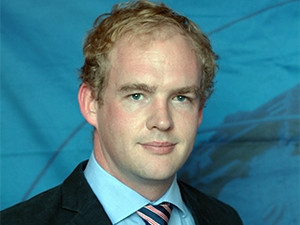ITWeb Data Centre Summit 2016
If you are a qualified end user in this market, your attendance is FREE. Register here now, seats are limited at the 2nd ITWeb Data Centre Summit.
If you are a vendor the standard fee for non-sponsoring delegates applies, click here to register now.
For an updated agenda click here.
Despite the weak economy, the SA data centre market is expected to grow significantly this year, driven mainly by cloud offerings.
George Etheredge, ICT research analyst at Frost & Sullivan, says an argument can be made that increased macroeconomic uncertainty is a driver for growth in the market.
However, uncertainty will discourage businesses from investing in their own data centres, and increase the demand for third party services. "A cost, rather than an investment-based model, offers more flexibility which is valuable under conditions of uncertainty."
Etheredge will be presenting on 'The South African Data Centre Market in 2016: Competitive differentiation and the looming menace' at the ITWeb Data Centre Summit 2016 on 20 July at The Forum in Bryanston.
He describes 'looming menaces' as being the large, international cloud providers such as Amazon and Google. "These businesses operate on a scale far larger than anything in SA and have used this scale to offer very low-price cloud services. The question is, therefore, what can South African firms do to guard themselves against these larger providers?"
How does this affect local businesses? "The best response to this threat depends on what kind of service is being offered. South African firms will not be able to go head to head with the likes of Amazon, Google and Microsoft, but they do have some distinct advantages."

He explains: "Toward the colocation end of the data centre services spectrum, a company's offering is made vastly more valuable by the presence of magnet tenants and other key clients. These tenants make it far easier and more cost effective for new tenants to interconnect generating considerable network effects."
These network effects act as a barrier to entry, as prospective market entrants would have to try lure magnet tenants away from their current providers or persuade them to lease additional space, he adds. "As the magnet tenants are often telcos, this casts some doubt on the viability of non-neutral pure colocation providers."
At the other end of the data centre services spectrum are cloud services - infrastructure, platform and software. "The competitive picture here is rather different. Cloud is by definition anonymous - customers do not know where data is stored or who else is using the infrastructure. South African firms can cheaply acquire this type of service from one of the 'big three' and there is relatively little scope to compete with the 'big three' on these grounds."
According to Etheredge, what behemoths like Amazon, Google and Microsoft struggle to offer is a good customer experience. "Although their services are intended to be used with little support, the cloud adoption process is generally far from simple. In this there is an opportunity for South African providers."
He says although local providers may not be able to compete with Amazon on price, they can leverage their existing client relationships, as well as their experience of the South African business environment, to provide key complementary services to their XAAS offerings. "The relationships that cloud providers build with their customers will be vital in defending against competition from large, global providers."
Delegates attending Etheredge's talk can expect a fairly comprehensive outline of competitive options at various points on the spectrum of data centre services. This will be combined with insights from Frost & Sullivan market and economic research.
Share